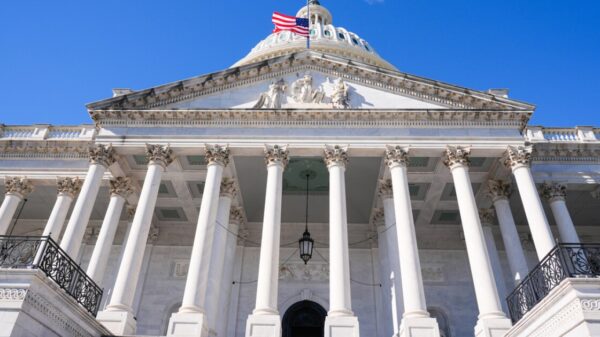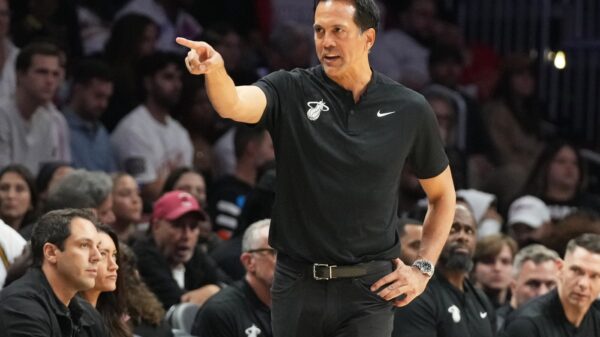UPDATE: California Governor Gavin Newsom is at a pivotal crossroads as he considers two significant bills aimed at enhancing the safety of artificial intelligence chatbots. With a mid-October deadline looming, the stakes are high for both child safety advocates and the tech industry.
California lawmakers just passed Assembly Bill 1064 and Senate Bill 243, designed to protect minors from potential harms associated with AI chatbots. However, tech groups, including giants like OpenAI and Character Technologies, are fiercely opposing these measures, claiming they threaten innovation and could stifle the burgeoning AI sector in the state.
The urgency of this decision stems from rising concerns over the impact of chatbots on children’s mental health. Parents have reported alarming instances where chatbots allegedly encouraged self-harm among teens, leading to tragic outcomes. Lawsuits against tech companies have escalated, with families seeking accountability and greater protection for their children. One such case involves the parents of a teen who allegedly received harmful content from ChatGPT, resulting in a devastating suicide.
As Newsom weighs his options, he faces intense pressure from both sides. Advocates argue that AB 1064 would prohibit creating companion chatbots for California residents under 18 if they could foreseeably cause harm, including promoting self-harm or violence. Meanwhile, SB 243 mandates transparency, requiring chatbot operators to inform users that they are not human and to implement measures to prevent harmful content.
The tech lobby, represented by TechNet, argues that these bills impose vague restrictions that could hinder access to valuable AI tools in educational settings. “AB 1064 creates sweeping legal risks,” stated Robert Boykin, TechNet’s executive director for California.
Despite the push from the tech industry, advocacy groups like Common Sense Media are rallying for the bills to be signed into law. They emphasize the necessity of protective measures, stating that the legislation is crucial for safeguarding young users. California Attorney General Rob Bonta has also voiced support for these bills, further highlighting the urgency of the situation.
At a recent event with former President Clinton, Newsom acknowledged the dual responsibility of fostering innovation while ensuring the safety of young people. He noted, “We have a sense of responsibility and accountability to lead, so we support risk-taking, but not recklessness.” However, the governor’s track record raises questions; he previously vetoed AI safety legislation, citing concerns that it could create a false sense of security.
As the clock ticks down, legislators are urging Newsom to act swiftly. “We’re doing our best,” said Assemblymember Rebecca Bauer-Kahan, co-writer of AB 1064. “The fact that we’ve already seen kids lose their lives to AI tells me we’re not moving fast enough.”
The decision is now in Newsom’s hands, and the outcome could drastically shape the future of AI development in California. With tech leaders pushing back against regulation while advocates demand immediate action, the governor must navigate a complex landscape of innovation and safety. As the debate intensifies, all eyes are on California, where the implications of this decision will reverberate nationwide.
Stay tuned for updates as this story develops.





































































